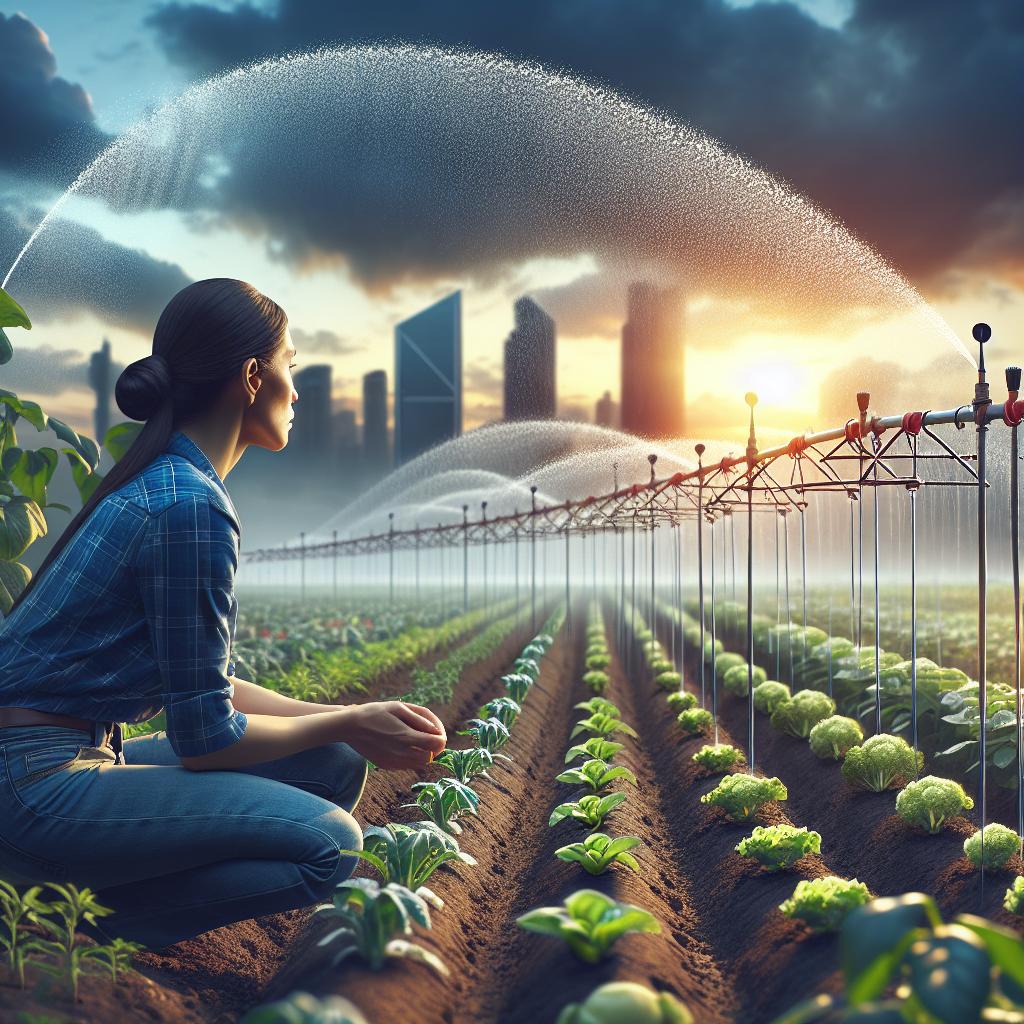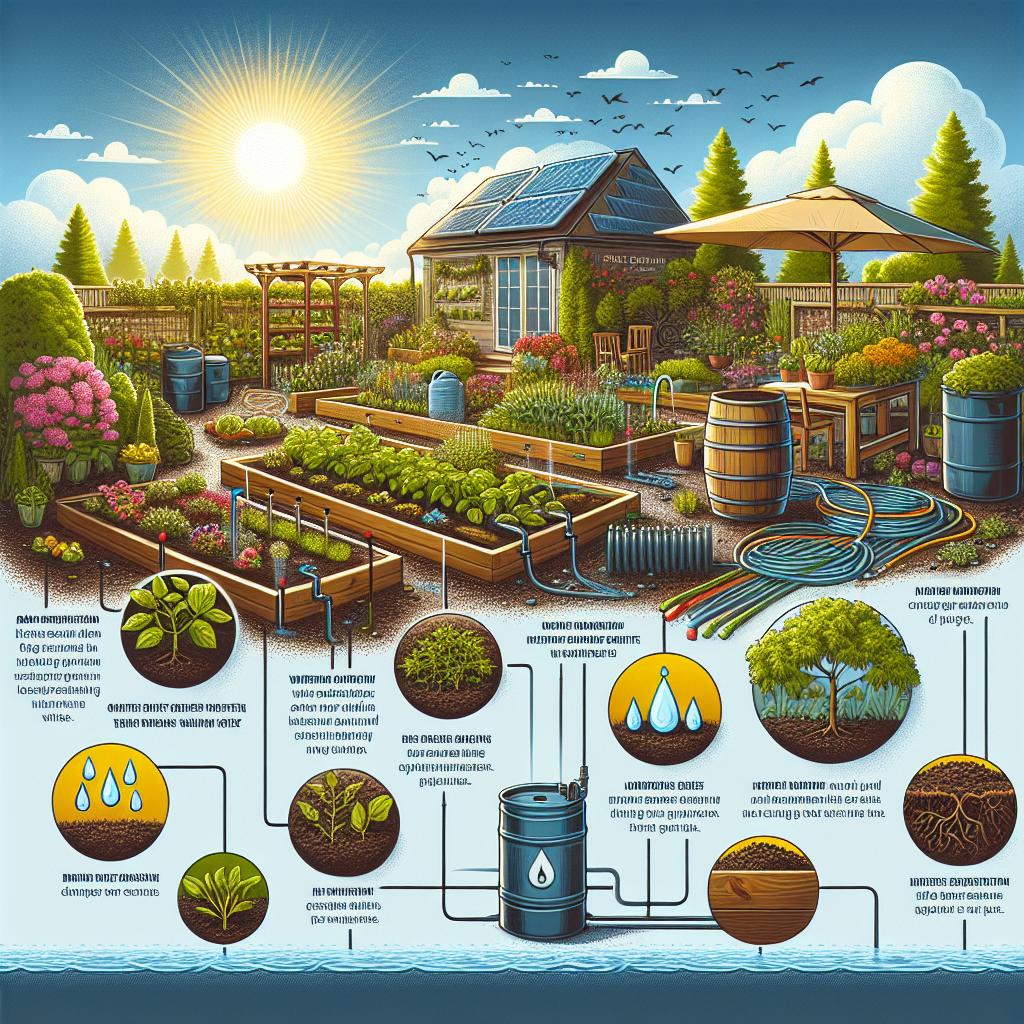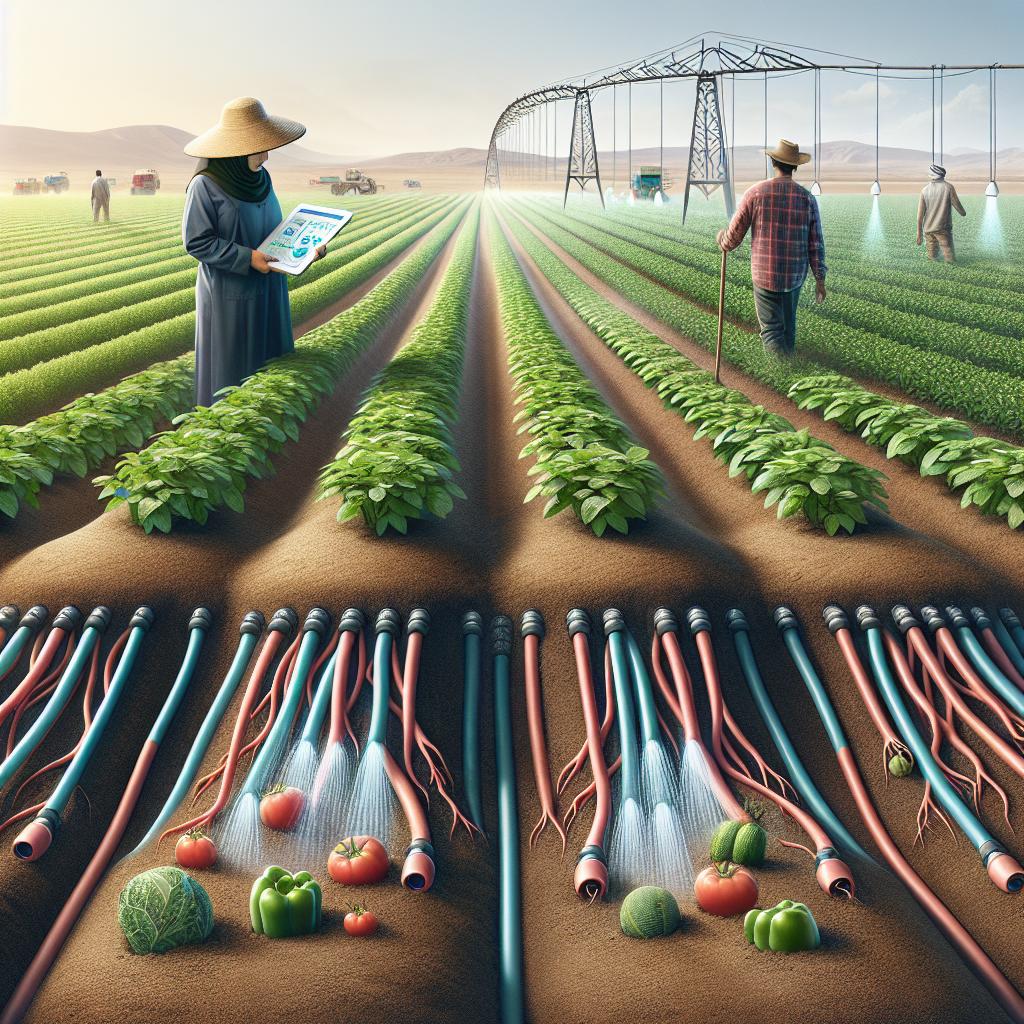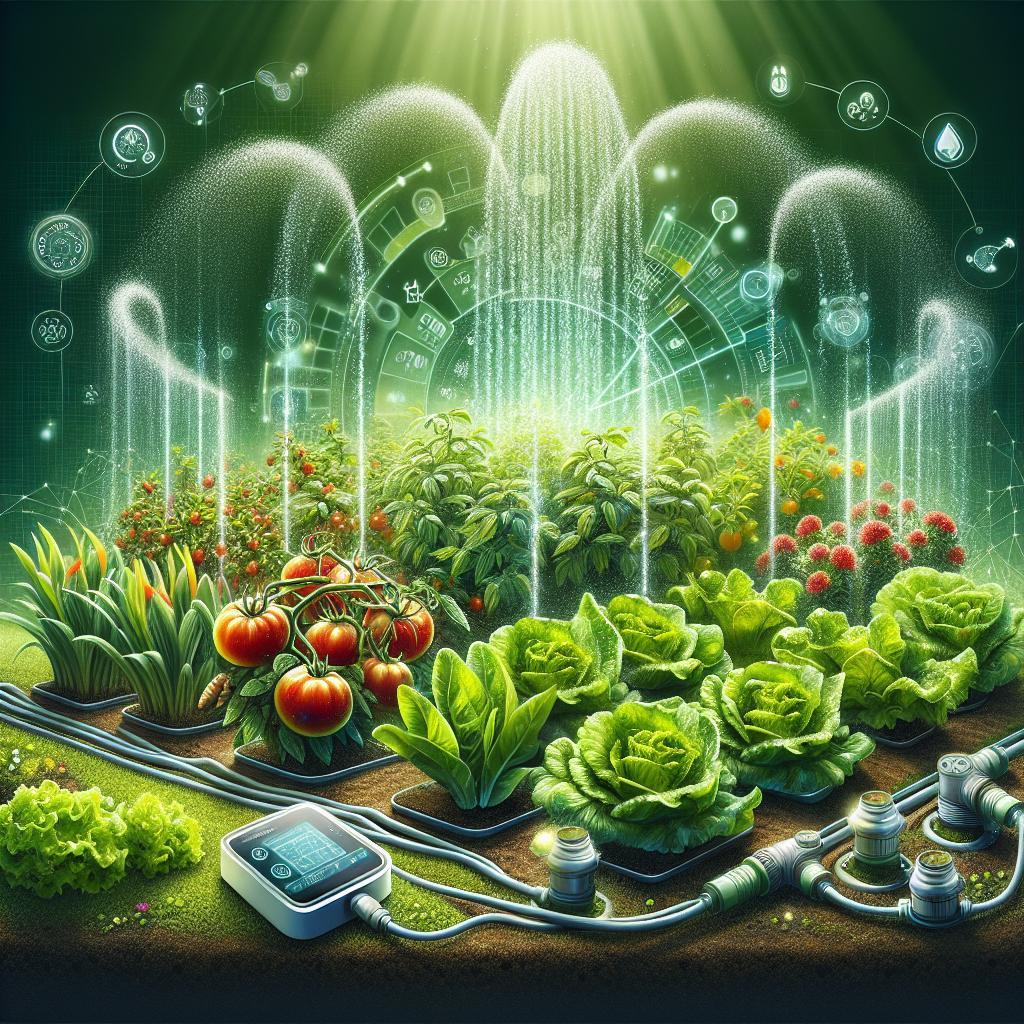This post may contain affiliate links which means I may receive a commission for purchases made through links. Learn more on my Private Policy page.
Imagine a sun-drenched field, teeming with vibrant vegetables in every hue you can think of. But amidst this idyllic scene lies a secret to success that many growers are just beginning to discover: micro-irrigation. If you’ve ever wondered how farmers manage to cultivate such bountiful, luscious produce while conserving precious water resources, you’re in for a treat! In this article, we’re diving into the world of micro-irrigation—a technique that’s transforming the landscape of vegetable production. From slashing water usage to enhancing crop yields, micro-irrigation is not just a trend; it’s a sustainable solution that benefits both farmers and the environment. So, roll up your sleeves and join us as we explore the myriad advantages of this innovative watering method, and learn how it can help you grow your green dreams with minimal fuss and maximum flavor!
Embracing Precision: How Micro-Irrigation Transforms Vegetable Farming
Micro-irrigation technology marks a revolutionary shift in the farming landscape, particularly in vegetable production. By delivering water directly to the root zone of plants, this method enhances water efficiency remarkably. Growers have reported that precision application helps in minimizing waste, significantly reducing overall water usage and fostering sustainable practices. With such efficiency, farmers can tailor their watering schedules based on weather conditions, soil moisture levels, and specific crop requirements, leading to healthier plants and improved yields. This targeted method also helps in managing nutrients more effectively, ensuring that crops receive the essential elements they need without excess runoff.
The benefits of this innovative irrigation technique extend beyond just water conservation. Notably, it helps in reducing the risk of disease by limiting excess moisture on foliage and preventing waterlogging in the soil. In addition, the lower volume of water used reduces energy costs associated with pumping, further enhancing farm profitability. Here are some key advantages of micro-irrigation for vegetable production:
- Water Efficiency: Significantly lowers water consumption.
- Improved Crop Quality: Promotes consistent growth and higher yields.
- Reduced Labor Costs: Automated systems ease the burden on farmers.
- Environmental Impact: Less runoff and soil erosion.

Water Wise: Maximizing Efficiency and Reducing Waste in Your Garden
When it comes to vegetable production, incorporating micro-irrigation systems can significantly boost your garden’s efficiency while helping to conserve precious water resources. This method involves delivering water directly to the plant’s root zone through pipes, emitters, or tubes, ensuring that moisture is precisely where it’s needed most. Key benefits of adopting micro-irrigation include:
- Reduced water usage by up to 50%, compared to traditional irrigation methods.
- Minimized weed growth, as the surrounding soil remains drier.
- Improved crop yields due to consistent moisture levels.
Additionally, micro-irrigation systems can be easily integrated with smart technology, allowing you to monitor soil moisture levels and adjust watering schedules automatically. This not only enhances plant health but also contributes to sustainable gardening practices. A simple comparison of traditional irrigation versus micro-irrigation highlights these efficiencies:
| Aspect | Traditional Irrigation | Micro-Irrigation |
|---|---|---|
| Water Usage | Higher | Lower |
| Weed Growth | Encouraged | Minimized |
| Crop Yield | Variable | Consistent |

Rooted in Success: The Benefits of Targeted Nutrient Delivery
Micro-irrigation systems are revolutionizing the way we cultivate vegetables, enabling farmers to provide essential nutrients directly to the roots of their crops. This precise delivery mechanism minimizes waste and maximizes efficiency, ensuring that every drop counts. By utilizing methods such as drip irrigation, growers can deliver a tailored blend of water and nutrients, significantly enhancing plant health and productivity. Some of the standout benefits include:
- Improved Nutrient Uptake: Plants receive nutrients as they need them, leading to stronger growth and healthier produce.
- Reduced Fertilizer Costs: Targeted application reduces the overall amount of fertilizer required, saving money and resources.
- Minimized Soil Erosion: Less runoff means less soil loss, allowing for more sustainable farming practices.
Moreover, micro-irrigation not only nurtures individual plants but also conserves water and energy in the long run. By focusing on the root zone, these systems promote deeper root growth and resilience against drought conditions. Farmers can also expect a noticeable decrease in weed growth, as this method limits water availability, favoring the targeted plants over potential intruders. The broader advantages include:
- Increased Yield: Healthier plants lead to larger harvests and better quality vegetables.
- Environmentally Friendly: Less chemical runoff helps protect local ecosystems.
- Versatility: Ideal for a wide range of crops and soil types, making it adaptable for various farming needs.

Cultivating Healthier Crops: Why Micro-Irrigation Boosts Yield and Quality
Micro-irrigation has revolutionized the way we approach vegetable farming, allowing growers to optimize water usage while enhancing crop health. By delivering water directly to the root zone, this method minimizes evaporation and runoff, ensuring that every drop counts. The precision offered by micro-irrigation systems not only reduces water wastage but also promotes uniform growth and improved nutrient uptake, which are essential elements for higher yield and quality. As a result, farmers often witness vibrant and robust plants, resulting in vegetables that are not just abundant but also packed with flavor and nutrients.
Moreover, the adaptable nature of micro-irrigation systems empowers farmers to respond swiftly to changing environmental conditions. This method allows for precision scheduling of irrigation, thus mitigating the risks of overwatering or underwatering. Adding to its charm, farmers can easily incorporate fertigation, where fertilizers are mixed with irrigation water, leading to enhanced absorption and reduced wastage of nutrients. Below is a table that highlights some key benefits of micro-irrigation in vegetable production:
| Benefits | Description |
|---|---|
| Water Efficiency | Reduces water usage by focusing on targeted irrigation. |
| Improved Crop Quality | Delivers uniform moisture, enhancing taste and nutrition. |
| Cost-Effectiveness | Lower water bills and potential for increased profits. |
| Labor Savings | Automated systems reduce manual labor and time. |
In Retrospect
As we wrap up our journey through the world of micro-irrigation, it’s clear that this innovative approach is not just a drip in the bucket—it’s a wave of change for vegetable growers everywhere. By embracing the advantages of micro-irrigation, farmers can cultivate lush produce while conserving precious water resources and promoting sustainable practices.
Imagine walking through vibrant fields of tomatoes, peppers, and leafy greens, knowing that each droplet delivered is carefully optimized for growth. Not only does micro-irrigation enhance plant health, but it fosters a deeper connection between the farmer and the land, nurturing both crops and the environment alike.
So, whether you’re a seasoned farmer or a budding gardener, consider the impact of micro-irrigation on your vegetable production journey. Dive into the future of farming with a system that promotes efficiency, sustainability, and, most importantly, delicious harvests. With every tiny droplet, you’re not just watering your plants; you’re nurturing the next generation of agricultural innovation. Let’s get growing—with less waste and more flavor!
This post may contain affiliate links which means I may receive a commission for purchases made through links. Learn more on my Private Policy page.

